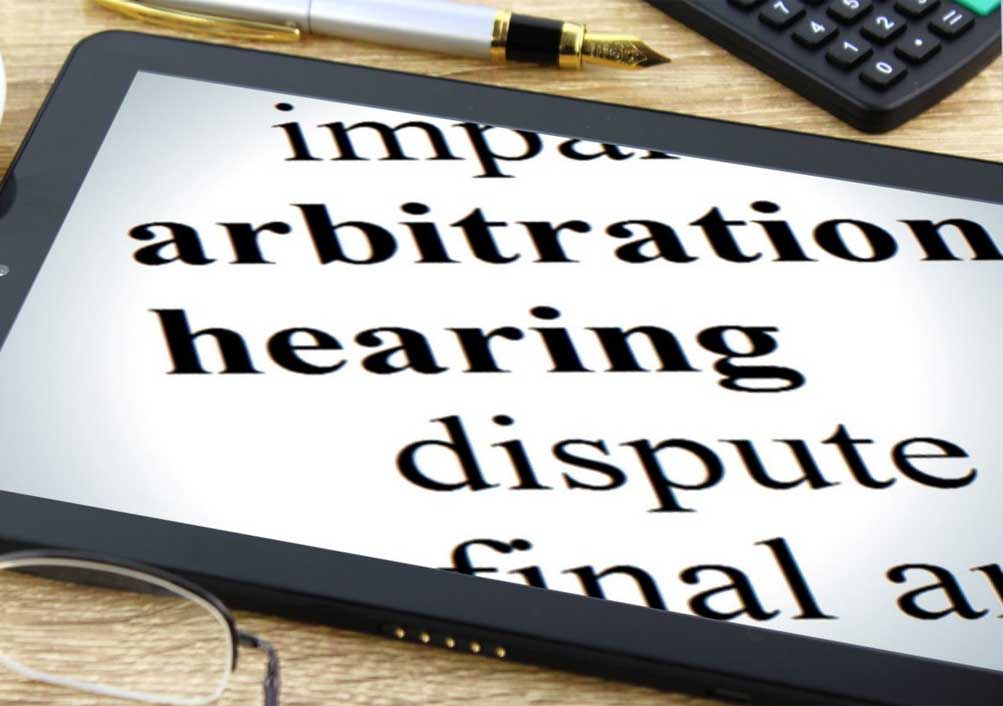Person whose relationship with parties falls under any category in Seventh Schedule of Arbitration & Conciliation Act, is ineligible to be appointed as Arbitrator: Kerala HC

Read Judgment: Tulsi Developers India Pvt. Ltd vs. Dr. Appu Benny Thomas
LE Correspondent
Kolkata, August 23, 2021: While answering to an Arbitration Request, the Kerala High Court has ruled that subsequent to the amendments to the Arbitration & Conciliation Act in the year 2016, notwithstanding any agreement to the contrary, any person whose relationship with the parties falls under any of the categories in the seventh Schedule of the Act is rendered ineligible to be appointed as an Arbitrator.
Quoting the decision of Supreme Court in the case of TRF limited vs. Engineering projects Ltd. [(2017) 8 SCC 377], where it was unreservedly declared that neither a party to the disputes nor a person nominated by it can be appointed as an Arbitrator, the Single Bench of Justice Devan Ramchandran disregarded the stipulations of the agreement, to the extent to which it allows the lessor to nominate the Arbitrator when the parties fail to arrive at a consensus nominee.
The focus in this case is on the interplay of Sections 11(5) and 11(6) of the Arbitration & Conciliation Act, since both of them deal with appointment of a sole Arbitrator, albeit in two subtly distinct scenarios, and it is this distinction which is ingenuously grabbed by the respondent to resist this Arbitration Request, added Justice Ramachandran.
As per the background of the case, the petitioner company had approached the High Court praying for appointment of a sole Arbitrator in terms of the lease agreement entered into between them and the respondent, to resolve the disputes pertaining to the demand made to the respondent.
The counsel for respondent contested by submitting that the grounds raised by the petitioner ineluctably disclose that they have, in fact, approached the High Court u/s 11(5) of the Act, though styling it as being u/s 11(6) thereof; and therefore, that unless thirty days have expired after they made their demand for appointment of an Arbitrator, the subject Arbitration Request would be premature and hence not maintainable.
It was also argued that the agreement did not provide for arbitration of disputes relating to the lease arrangement, which could only be considered by a competent Rent Control Board.
On the other hand, the counsel for petitioner defended the maintainability of this Arbitration Request, contending that Section 11(5) of the Act was called in only when the agreement does not contain a procedure for appointing an Arbitrator, or when the parties have not agreed on such.
Defending another objection that the disputes were not capable of being resolved through Arbitration but only by a competent Rent Control Court, the counsel asserted that this aspect was one that the Arbitrator alone can answer as per the well accepted doctrine of “Kompetenz – Kompetenz”, and under the purlieus of Section 16 of the Act.
After considering the arguments, Justice Ramachandran examined the forensic perimeter of Section 11(5) of the Act, in the context of unambiguous averment of the petitioner that they had requested the respondent for referring the disputes between them to arbitration, in terms of the agreement; and that the latter had unequivocally refused to it.
The High Court opined that requirement of waiting thirty days after the notice seeking appointment of an Arbitrator is made by one party to the other, before approaching this Court, is stipulated only in Section 11(5) of the Act and not in Section 11(6); and that as per the latter, appointment is to be accomplished as per the procedure agreed upon by the parties.
“Clause 27 of Annexure-1 crystally provides for a specific procedure – which has been agreed between the parties – as regards appointment of an Arbitrator. Axiomatically, therefore, the mandate of Section 11(2) of the Act has been satisfied by the stipulations in this Clause; and resultantly, Section 11(5) cannot come into play because, as is evident from its phraseology, the procedure therein is attracted only “failing any agreement referred to in subsection (2),” observed the High Court.
Therefore, finding from the agreement that the parties had agreed on a procedure for appointing an Arbitrator, Justice Ramachandran refused to accept that this Arbitration Request urged u/s 11(6) of the Act would be vitiated for the reason of non-compliance of the rigour of Section 11(5) thereof.
Accordingly, the High Court deemed it appropriate to allow this Arbitration Request and to appoint a sole Arbitrator to consider and resolve the disputes between the parties.
Sign up for our weekly newsletter to stay up to date on our product, events featured blog, special offer and all of the exciting things that take place here at Legitquest.




Add a Comment